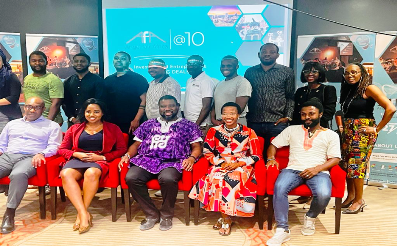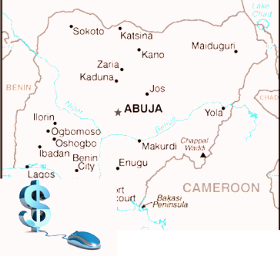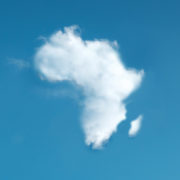By Eric Osiakwan
In February 2023, Universal Music Group (UMG) annouced a majority strategic investment into Mavin Global[1] – a leading African records label based in Nigeria – the deal is subject to regulatory approval by the end of Q3 2024. By some estimates the deal is between $125M and $200M giving UMG about 80% of Mavin Global[2].
RELATED: 6?s with Eric Osiakwan on fostering fraternity and growth in Africa’s startup ecosystem
UMG had opened offices in Côte d’Ivoire and Nigeria in 2019, while licensing the biggest streaming service in the territory – Chinese-owned Boomplay and acquiring a majority stake in historic Kenyan label AI Records[3]. In 2019, Kupanda Holdings – a joint venture between Kupanda Capital and TPG Growth (a division of American private equity firm TPG) – announced a multimillion dollar investment in Mavin.[4] The UMG deal gave TPG Growth a ful exit, while Kupanda Capital remains a minority investor and strategic advisor[5].
Kupanda and TPG’s investment in Mavin Global brought in not just capital but also value added services such as global partnerships and expanding their expertise into publishing and distribution, making Marvin Global an attractive acquisiton target for UMG five years later. Scaling businesses in Africa requires more than capital. Tech entrepreneurs who want to scale their ventures across Africa would benefit from investors that have the networks, street smarts and the experience of having penetrated the African market before. Given how nascent our ecosystems are, in most cases founders have never built a multi-national African business.
The skill set a founder needs to start a business is substantially different from what he or she needs to scaleup. Some founders have both, others are able to acquire them over time and yet a few are not able to, in which case a transition may be necessary to save the business. In my last essay, I concluded that to scaleup in Africa, one needs capital, capacity and community as a bundled service – today, let’s unpack what each of these entail:
Capital – scaling up to a new country or territory requires capital investment (capex) to launch the new operation while at the same time the existing operation may require additonal operational expenses (opex). This is due to the need to turn the existing country into a group headquarters that services a wider operation. Such additional opex may come in the form of debt because the existing business may be able to service it while the capex for the expansion comes from equity investors, diluting the existing shareholders. If the founders and existing shareholders have no scaleup expertise and experience then that must be a key criteria for the new investors who are coming in because the blind cannot lead the blind. Cellulant from Kenya was also able to raise scaleup from capital from investors like TPG to grow their operations across the continent.
Capacity involves expanding and developing the leadership to become a senior management team made up of a CEO, COO, CFO, CTO and CGO at the group level in the existing country which becomes the headquarters. They are complimented by a board of directors with experience to provide oversight and ensure good corporate governance. Next is to build a country operating team lead by a Country Manager who takes on the local operational business allowing the group senior management team to focus on the Africa or global expansion. Recruiting and building this capacity requires experience and deep contacts to develop a good mix of local and expatriate or returnee talent. Capacity may also extend to re-organizing the business to protect its Intellectual Property and prepare the business effectively for a future exit. Providers of capital also support portfolio companies as they expand to identify and cultivate the relevant local partners to team up with in each market. Onafriq was able to build their capacity to be a pan Africa business with the help of their strategic investors.
Community is the cultural context of business dealings, which a business expanding into a new market must become a part of. Helping the entrepreneurs to first understand the country’s business culture then connect and become a part of that local business community is crucial to success. The investors must bring this to the portfolio companies, leveraging their network across the continent.
Chanzo Capital has cultivated an extensive pan African network from my expereince of building about twenty eight businesses in thirty two African countries from 1998 to 2012. Our annual Angel Fair Africa which brings entrepreneurs to pitch to a room of investors is a platform we have used since 2013 for building African ecosystems and bringing the community of stakeholders together. Since launching in Johanesburg, South Africa in 2013, we have taken the annual event to Nigeria, Ghana, Kenya, Cote d’Ivoire, Tanzania, Mozambique and virtually in Senegal due to the covid pandemic.
AFA@10 cohort in a group picture with organizing team
Every year, to create a successful event, we spend almost half of the year in the host country – this enables us to be on the ground and engage with the local community to ensure that we are able to stage an event that adds value to the market and culminates in deals. We celebrated our tenth anniversary in South Africa last year, and we can’t help but reflect that what started with a small band of believers in Africa’s tech future is now a continent-wide community that continues to grow, with founders at the centre.
After ten years of investing in startups and enabling tech ecosystems across Africa, the next decade will be about scaling up some of these ventures into new markets. We will do this by doubling down on the key ingredients that we now know are our secret sauce- Capital, Capacity and Community as a bundled service. Just like Mavin Records, the proof of the pudding will be in the exits.
[1] https://www.universalmusic.com/umg-announces-majority-investment-in-iconic-afrobeats-label-mavin-global-accelerating-expansion-of-africas-outstanding-creative-platform/
[2] https://pmnewsnigeria.com/2024/02/26/universal-music-group-acquires-mavin-records-label/
[3] https://www.musicbusinessworldwide.com/universal-buys-majority-stake-in-kenyan-label-ai-records/
[4] https://www.prnewswire.com/news-releases/mavin-records-attracts-multimillion-dollar-investment-from-kupanda-holdings-300787447.html
[5] https://www.africaprivateequitynews.com/p/universal-acquires-nigerian-music





























